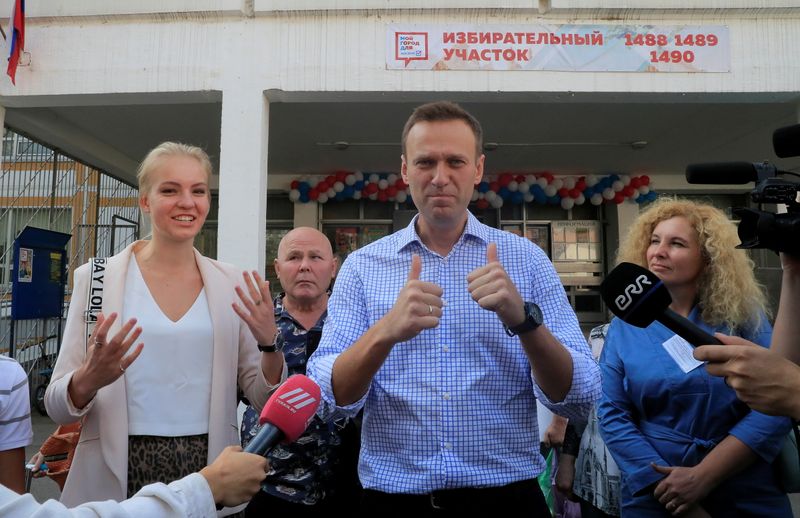By Emma Farge
GENEVA (Reuters) -The daughter of jailed Kremlin critic Alexei Navalny said on Tuesday that the Russian authorities' efforts to silence critics like her father would not work, though she also expressed concern about "the fast downfall of democracy in my country".
Daria Navalnaya made an unusual public appearance at a virtual human rights summit where she accepted a "moral courage" award on behalf of her father, who is serving a 2-1/2 year jail term.
Navalny, one of President Vladimir Putin's leading critics, says the charges against him were trumped up to thwart his opposition to the Kremlin, something it denies.
"For all these years, he (Navalny) has been showing the people in power, who are shamelessly abusing that power, that this is not going to work, that we are the majority," said Navalnaya, speaking from the United States at the event organised by the Geneva-based group UN Watch. "We, the citizens, will decide who is going to rule our country and for how long."
In her speech, delivered in English, 20-year-old Navalnaya described herself "as a proud daughter and as a Russian citizen, concerned about the fast downfall of democracy in my country".
She spoke of her feelings of fear and helplessness as a child when her home was raided by the police and also of how she supported her father last year while he was recovering in hospital after a serious illness by watching Netflix (NASDAQ:NFLX) with him.
Navalny was treated in Germany for what German doctors said was poisoning with a military-grade nerve agent. He accused Putin of ordering the poisoning, which the Kremlin denies.

Navalnaya said her father had written to her from jail asking for the award, given by the Geneva Summit for Human Rights and Democracy, to be dedicated to political prisoners in Russia and in its ally Belarus, where President Alexander Lukashenko is also accused of jailing opponents.
"Most of them (the political prisoners) are in a much worse situation compared to me because they're not as well-known or famous. But they should know that they are not alone or forgotten about," said Navalnaya, quoting her father.